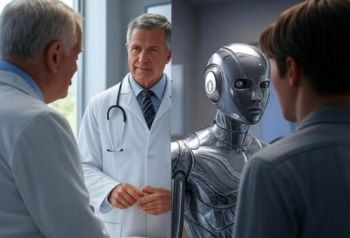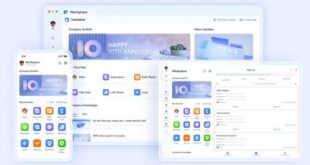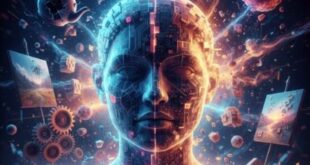With multiple reports claiming success with AI diagnosis, patients seem confused in terms of who to trust more
Many people have reported good results with consultations done with AI platforms such as ChatGPT. An increasing trend is being seen where people are seeking second opinions from AI platforms. This situation has created doubts in the minds of patients, as to which one is more reliable. Let us understand the strengths of doctors and AI platforms to make informed decisions.
 Why doctors can be better?
Why doctors can be better?
There are many things about a person that can be understood by their demeanor, way of talking, facial features and other physical characteristics. When you meet a person face-to-face, it is an entirely different experience. These live interactions are where doctors can get a better idea of the patient’s health. Such interactions can provide vital clues for making a correct diagnosis.
A doctor does not only make a diagnosis and provide prescriptions. Doctors also provide emotional support through personal interactions. Patients are often stressed about their condition and talking to a doctor provides significant relief on its own. Even before the medicines take effect. This emotional support and human touch can contribute to healing.
Doctors study medicine for several years and their learning continues with on-the-job experience. They meet dozens of patients everyday, which enriches their experience in a significant manner. Follow-up sessions allow doctors to better understand how medicines affect different people and which combinations will be most suitable.
In surgical procedures, rehabilitation and physiotherapy, doctors and medical staff have the advantage. Here too, specialized skills and experience are simply irreplaceable.
Why AI can be better?
AI’s strength lies in its ability to analyze vast datasets. They can go through millions of medical records and diagnostic test results in a quick and efficient manner. AI focuses on data and is not influenced by the patient’s physical, financial or other traits. It was recently noted that one of the leading AI platforms can diagnose diabetic retinopathy with 94% accuracy. This is equal to and better than many human specialists.
Another area where AI can be useful is pattern recognition. For example, a recent study found that an AI model was able to detect breast cancer in mammograms with 90% accuracy. In comparison, the accuracy rate of radiologists was around 85%.
AI has also been found better in terms of accessing the latest news and updates from the world of medicine. This allows AI platforms to potentially recommend new medicines and treatment options. AI can also analyze patient stories from various sources to make diagnosis of rare illnesses and medical conditions.
Another advantage that AI has is that it does not get fatigued. Patients can access them anytime, anywhere and can spend hours sharing their symptoms and related experiences. Such detailed inputs can potentially lead to more accurate diagnosis.
Conclusion
AI offers impressive capabilities in data analysis, pattern recognition and 24/7 availability. But it still lacks the human insight, emotional support and hands-on experience that doctors bring. Face-to-face interactions, years of training and the ability to observe subtle human cues give doctors an edge in many situations. Rather than choosing one over the other, the ideal approach may be to use AI as a supportive tool. This combined effort can lead to more accurate diagnosis and better patient outcomes.
 Newspatrolling.com News cum Content Syndication Portal Online
Newspatrolling.com News cum Content Syndication Portal Online





